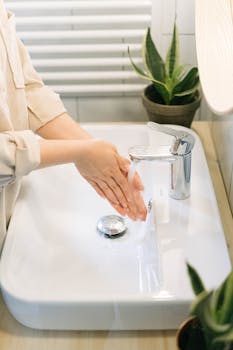Common Plumbing Issues in Brunswick Homes: Understanding and Addressing the Basics
Plumbing issues can be frustrating, especially when they arise frequently in homes like Brunswick. In this comprehensive guide, we will delve into common plumbing problems that homeowners may encounter, their causes, symptoms, DIY solutions, and when to call a professional plumber for assistance.
 Leaky Taps: A Drain on Your Budget
One of the most common plumbing issues in homes is leaky taps. This can be caused by worn-out O-rings or gaskets, loose faucets, or corroded pipes. Leaky taps may seem like a minor issue, but they can quickly add up to significant water and repair costs.
As you navigate through your home's plumbing system, keep an eye out for any signs of leaks, such as dripping sounds, water spots, or mineral deposits on surfaces. Regular maintenance is key in preventing these issues from escalating into full-blown problems.
Leaky Taps: A Drain on Your Budget
One of the most common plumbing issues in homes is leaky taps. This can be caused by worn-out O-rings or gaskets, loose faucets, or corroded pipes. Leaky taps may seem like a minor issue, but they can quickly add up to significant water and repair costs.
As you navigate through your home's plumbing system, keep an eye out for any signs of leaks, such as dripping sounds, water spots, or mineral deposits on surfaces. Regular maintenance is key in preventing these issues from escalating into full-blown problems.
The Causes of Common Plumbing Issues

Image by Ivan Samkov on Pexels
Clogged Drains: A Drain-Down Solution
Clogged drains are another frequent plumbing issue that can be easily addressed with some basic DIY skills and the right tools. When a drain becomes clogged, it can cause sewage backups, odor issues, and even damage to your home's foundation. To tackle clogged drains, start by removing any visible blockages, such as hair or soap scum buildup. Then, use a plunger or drain snake to try and dislodge the blockage. If these methods fail, consider using a chemical drain cleaner or calling in a professional plumber for assistance.Low Water Pressure: A Leak in Your System
Low water pressure is another common plumbing issue that can be caused by various factors. One of the most common culprits is mineral buildup in your pipes, which can reduce water flow and pressure. To address low water pressure, try adjusting your home's plumbing setup to ensure proper drainage and water flow. Consider installing a water filter or aerator to help reduce mineral deposits and improve overall system performance.DIY Tips for Troubleshooting Plumbing Issues
Before calling in a professional plumber, it's essential to diagnose the issue yourself with some basic DIY skills. Here are some tips to get you started:- Check your water meter to ensure it's functioning properly.
- Inspect your pipes and fittings for signs of damage or wear.
- Use a pressure test kit to identify low water pressure or leaks.
- Try using a drain snake or plumber's auger to clear clogs.
When to Call a Professional Plumber
While DIY skills can be helpful in troubleshooting plumbing issues, there are times when it's best to call in a professional plumber. Some common scenarios include:- If you're unsure about how to diagnose or fix a problem.
- If the issue persists despite your best efforts with DIY solutions.
- If you've noticed signs of water damage or mold growth in your home.